Source: https://top-list.co/top-best-foods-to-increase-blood-flow-and-circulation-v3296.html
- Cayenne Pepper
- Pomegranate
- Cinnamon
- Garlic
- Fatty Fish
- Beets
- Turmeric or Onion
- Leafy Greens
- Citrus Fruits
- Walnuts or Tomatoes
Cayenne Pepper
The fiery taste of cayenne pepper is derived from a phytochemical known as capsaicin. Capsaicin increases blood flow to tissues by reducing blood pressure and promoting the generation of nitric oxide and other vasodilators, which are substances that help your blood vessels expand.
Vasodilators relax the small muscles present in blood vessel walls, allowing blood to flow more readily through your veins and arteries. Cayenne pepper use enhances blood vessel strength and decreases plaque development in the arteries, according to research. Furthermore, because they might increase blood flow to the afflicted area, these hot peppers are commonly incorporated in pain-relieving lotions.
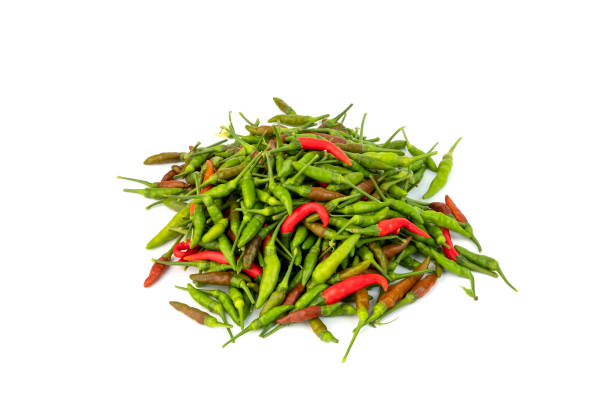
Cayenne Pepper

Pomegranate
Pomegranates are juicy, sweet fruits strong in polyphenol antioxidants and nitrates, both of which are effective vasodilators. Pomegranate consumption, whether as juice, raw fruit, or supplement, may enhance blood flow and oxygenation of muscular tissue, which may benefit athletes in particular.
In a study of 19 active persons, researchers discovered that taking 1,000 mg of pomegranate extract 30 minutes before exercising boosted blood flow, blood vessel diameter, and exercise performance. Another study found that drinking 17 ounces (500 mL) of pomegranate juice daily before or after weight training decreased discomfort, muscle damage, and inflammation in top weightlifters.
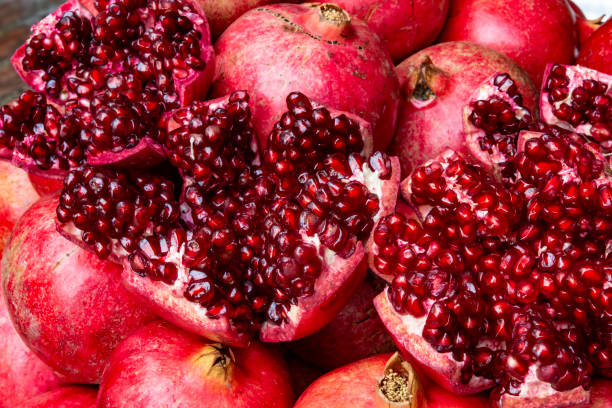
Pomegranate
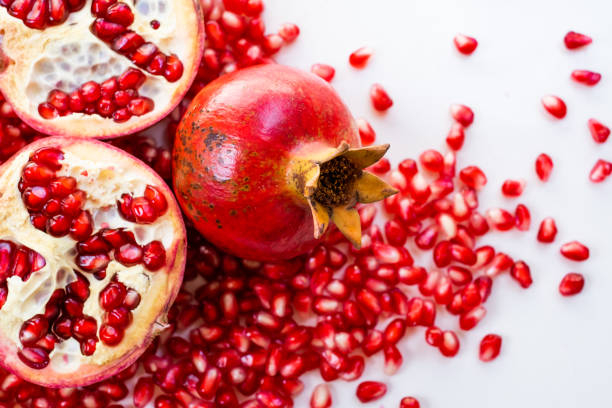
Cinnamon
Cinnamon is a warming spice with several health advantages, including improved blood flow. Cinnamon enhanced blood vessel dilatation and flow in the coronary artery, which delivers blood to the heart, in animal experiments. When compared to rats in the control group, rats administered 91 mg per pound (200 mg per kg) of body weight of cinnamon bark extract daily for eight weeks had a superior cardiac function and coronary artery blood flow following intense exercise.
Furthermore, studies demonstrate that cinnamon can successfully lower blood pressure in individuals by relaxing blood arteries. This increases circulation and protects your heart. After 12 weeks, 1,200 mg of cinnamon per day lowered systolic blood pressure (the top number of a reading) by an average of 3.4 mmHg in 59 persons with type 2 diabetes.

Cinnamon
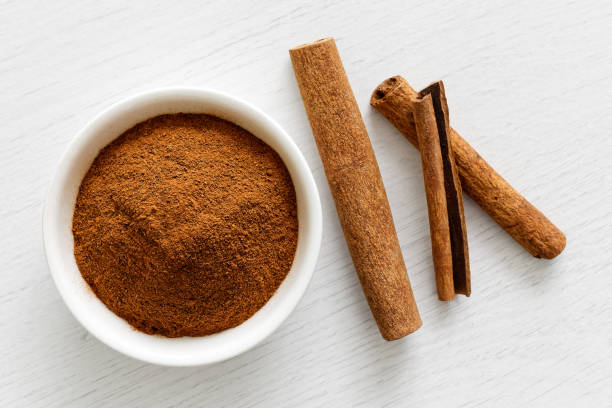
Garlic
Garlic is widely known for its cardiovascular and circulatory benefits. Garlic, notably its sulfur components, which include allicin, has been shown in studies to enhance tissue blood flow and reduce blood pressure by relaxing your blood vessels.
In fact, garlic-rich diets are related to improved flow-mediated vasodilation (FMD), a measure of blood flow efficiency. In a three-month trial of 42 persons with coronary artery disease, those who took garlic powder tablets with 1,200 mg of allicin twice daily for three months saw a 50% increase in blood flow via the upper arm artery compared to a placebo group.
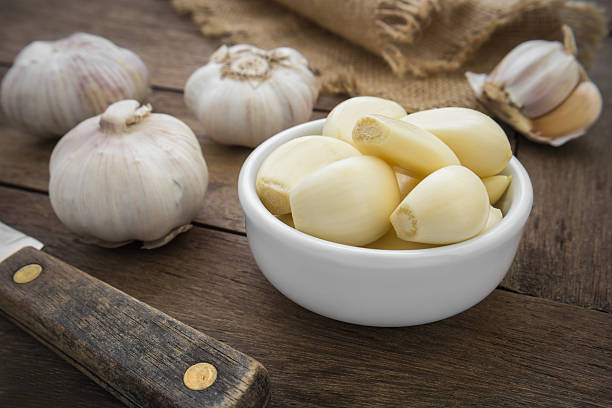
Garlic

Fatty Fish
Fatty fish, such as salmon and mackerel, are high in omega-3 fatty acids. Because they boost the generation of nitric oxide, which dilates your blood vessels and enhances blood flow, these fats are extremely useful for circulation.
Omega-3 fats also aid to prevent platelet clumping in the blood, which can contribute to blood clot formation. Furthermore, fish oil supplements have been related to lower blood pressure and better blood flow in skeletal muscle during and after exercise. In one research, large dosages of fish oil — 4.2 grams daily for four weeks — dramatically increased blood flow to the legs after exercise in ten healthy males.
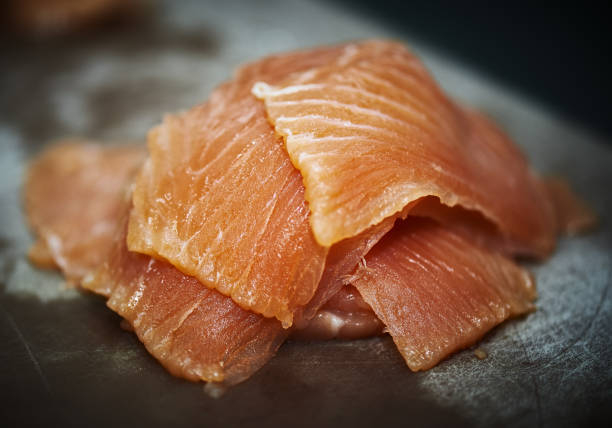
Fatty Fish
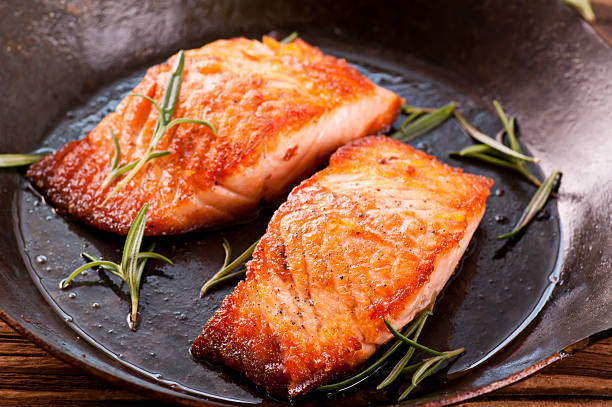
Beets
Many athletes use beet juice or powder to increase their performance. This is due to beets’ high nitrate content, which your body turns into nitric oxide. Nitric oxide dilates blood vessels, allowing more blood to flow to muscular tissue.
Supplementing with beet juice improves oxygen flow in muscle tissue, stimulates blood flow, and raises nitric oxide levels, all of which can improve performance. Aside from helping athletes, beets enhance blood flow in elderly people who have cardiovascular problems. In a study of 12 older persons, those who drank 5 ounces (140 mL) of nitrate-rich beet juice daily had lower blood pressure, clotting time, and blood vessel inflammation than those who drank a placebo.
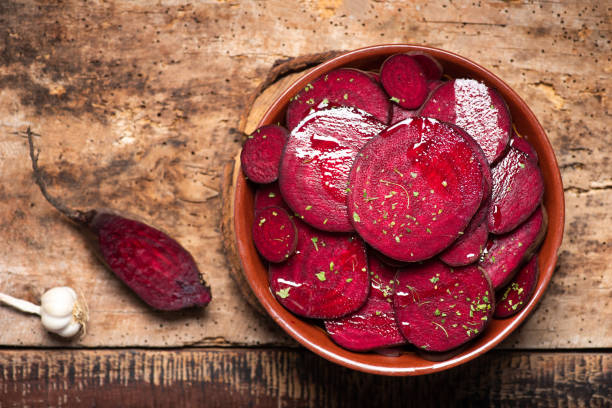
Beets
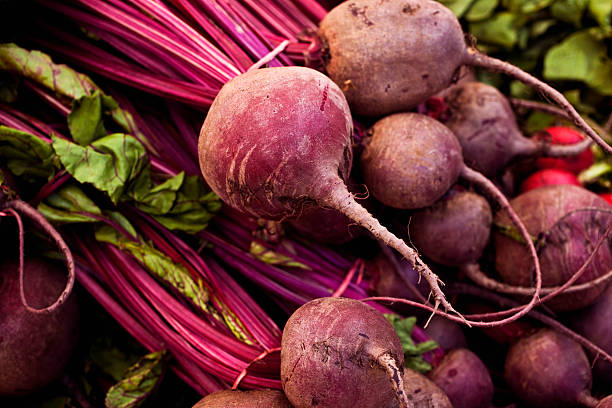
Turmeric or Onion
One of the numerous health advantages of turmeric is increased blood flow. Since ancient times, both Ayurvedic and traditional Chinese medicine have used turmeric to expand blood arteries and promote blood circulation. Curcumin, a chemical found in turmeric, has been shown in studies to aid improve nitric oxide production, reduce oxidative stress, and reduce inflammation. Taking 2,000 mg of curcumin daily for 12 weeks resulted in a 37% increase in forearm blood flow and a 36% increase in upper arm blood flow in a study of 39 participants.
Onions are high in flavonoid antioxidants, which are beneficial to heart health. When blood flow rises, this vegetable helps your arteries and veins enlarge, which promotes circulation. In a 30-day trial of 23 males, ingesting 4.3 grams of onion extract daily enhanced blood flow and arterial dilatation after meals considerably. Onions are also anti-inflammatory, which helps improve blood flow and heart health by lowering inflammation in veins and arteries.

Turmeric

Onion
Leafy Greens
Nitrates are found in leafy greens such as spinach and collard greens, which your body turns into nitric oxide, a powerful vasodilator. Nitrate-rich meals may increase circulation by dilating blood vessels, allowing blood to flow more freely.
In a 27-person trial, individuals who had high-nitrate (845 mg) spinach daily for seven days had significantly lower blood pressure and blood flow than a control group. Furthermore, studies have shown that persons who eat a traditional Chinese diet rich in nitrate-rich vegetables like Chinese cabbage had lower blood pressure and a reduced risk of heart disease than those who eat a standard Western diet.
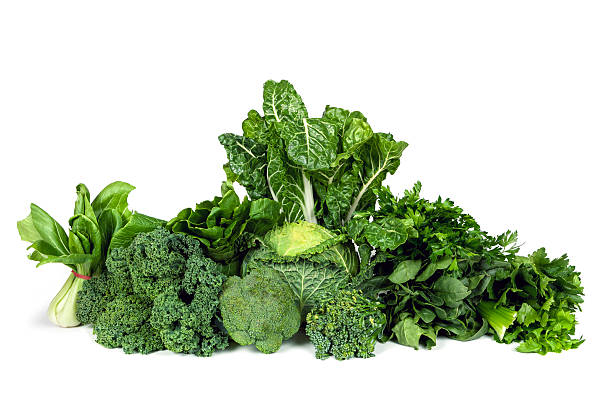
Leafy Greens

Citrus Fruits
Citrus fruits such as oranges, lemons, and grapefruit are high in antioxidants such as flavonoids. Consuming flavonoid-rich citrus fruits may reduce inflammation in your body, lowering blood pressure and artery stiffness while boosting blood flow and nitric oxide generation.
In a study of 31 participants, those who drank 17 ounces (500 ml) of blood orange juice each day for one week experienced substantial improvements in arterial dilation and significant decreases in inflammatory indicators like IL-6 and CRP when compared to a control group. Furthermore, frequent eating of citrus fruits such as lemon and grapefruit has been linked to lower blood pressure and a lower risk of stroke.

Citrus Fruits
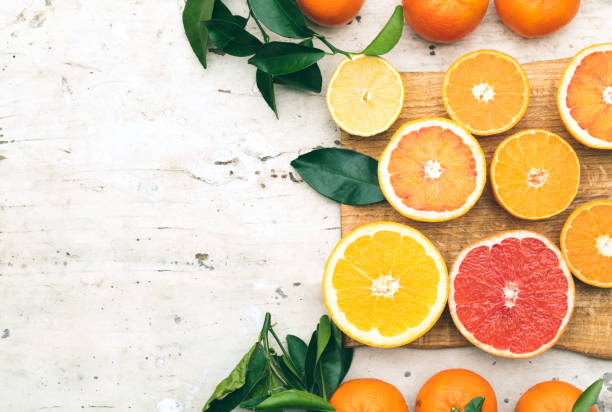
Walnuts or Tomatoes
Walnuts contain several beneficial components, including l-arginine, alpha-lipoic acid (ALA), and vitamin E, all of which boost the generation of nitric oxide. Eating walnuts may lower blood pressure, enhance blood vessel function, and reduce inflammation, which may be especially beneficial for diabetics. Diabetes patients frequently experience circulation problems and high blood pressure as a result of blood vessel damage induced by excessive blood sugar levels. A study of 24 persons with diabetes found that eating 2 ounces (56 grams) of walnuts per day for eight weeks improved blood flow much more than a control group.
Tomatoes may help lower angiotensin-converting enzyme (ACE) activity, which causes blood vessels to contract in order to manage blood pressure. Tomato extract, according to research, acts similarly to ACE-inhibiting medicines, opening up your blood vessels and boosting blood flow. Tomato extract has been shown in animal experiments to suppress ACE, decrease inflammation, and disrupt platelet aggregation, all of which can improve circulation.
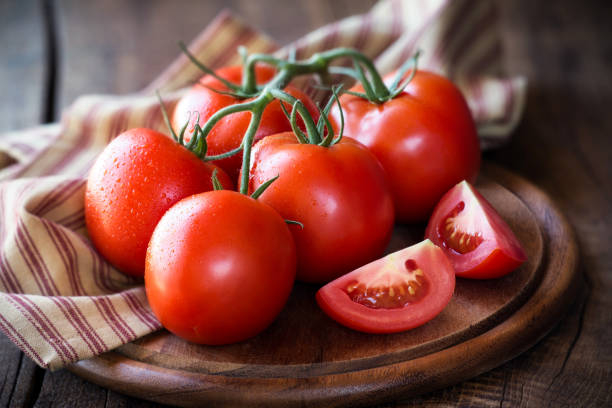
Tomatoes
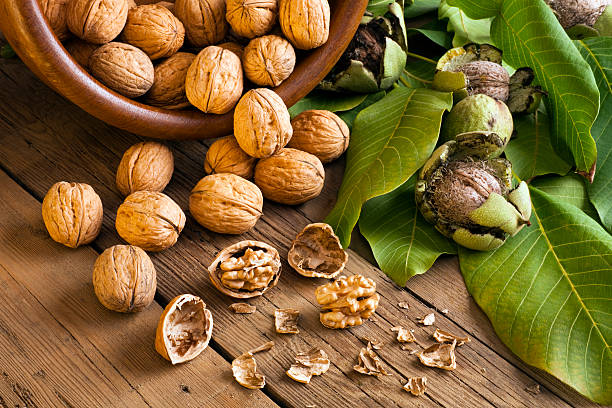
Walnuts
